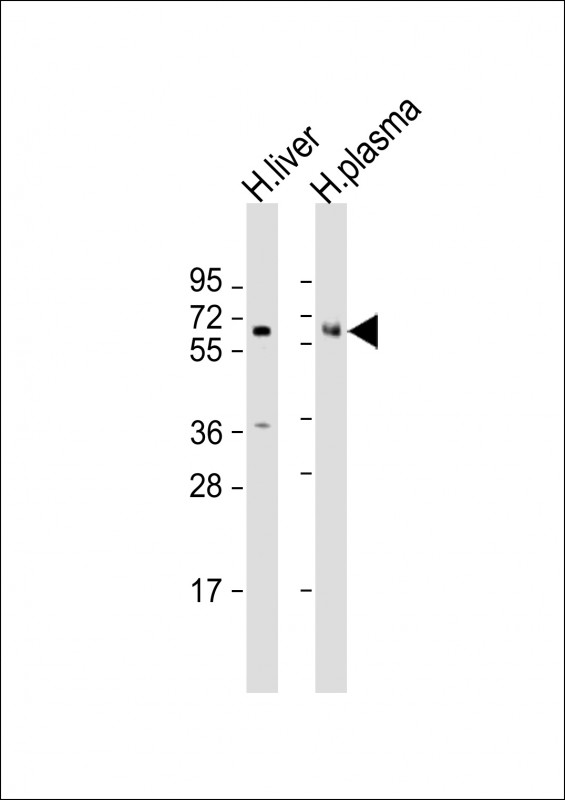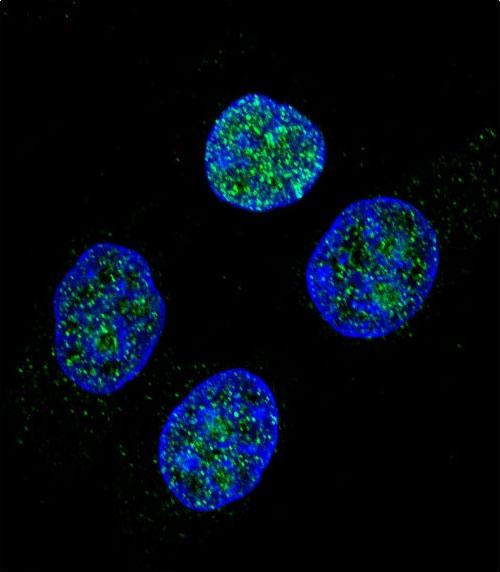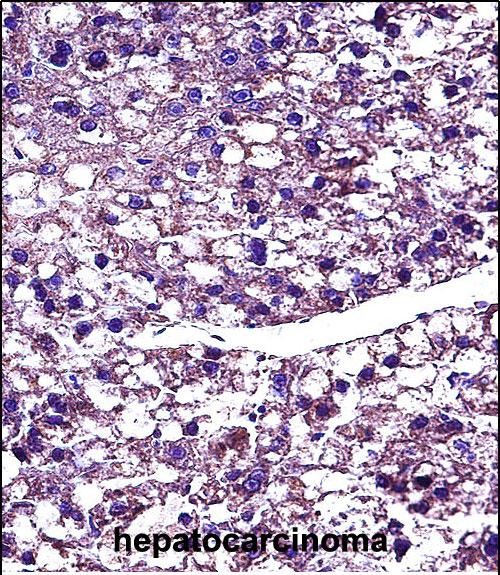


| WB | 1/1000 | Human,Mouse,Rat |
| IF | 咨询技术 | Human,Mouse,Rat |
| IHC | 1/100-1/500 | Human,Mouse,Rat |
| ICC | 1/10-1/50 | Human,Mouse,Rat |
| FCM | 咨询技术 | Human,Mouse,Rat |
| Elisa | 咨询技术 | Human,Mouse,Rat |
| Aliases | Vitamin K-dependent protein C, Anticoagulant protein C, Autoprothrombin IIA, Blood coagulation factor XIV, Vitamin K-dependent protein C light chain, Vitamin K-dependent protein C heavy chain, Activation peptide, PROC |
| Entrez GeneID | 5624 |
| WB Predicted band size | 52.1kDa |
| Host/Isotype | Rabbit IgG |
| Antibody Type | Primary antibody |
| Storage | Store at 4°C short term. Aliquot and store at -20°C long term. Avoid freeze/thaw cycles. |
| Species Reactivity | Human |
| Immunogen | This PROC antibody is generated from rabbits immunized with a KLH conjugated synthetic peptide between 177-206 amino acids from the Central region of human PROC. |
| Formulation | Purified antibody in PBS with 0.05% sodium azide. |
+ +
以下是3篇与PROC抗体相关的参考文献及其摘要概括:
1. **《Autoantibodies to protein C in patients with systemic lupus erythematosus》**
- 作者:K. Atsumi, et al.
- 摘要:研究系统性红斑狼疮(SLE)患者中抗蛋白C(PROC)自身抗体的存在及其与血栓事件的相关性,发现部分患者体内存在抗PROC抗体,可能与获得性蛋白C缺乏及血栓风险增加有关。
2. **《Mechanisms of acquired protein C deficiency in autoimmune disorders》**
- 作者:H. Takahashi & S. Kato
- 摘要:分析自身免疫性疾病中蛋白C缺乏的机制,指出抗PROC抗体会抑制蛋白C的活性功能,导致凝血-抗凝失衡,并与抗磷脂综合征(APS)的病理关联。
3. **《A novel ELISA for detection of anti-protein C antibodies in clinical samples》**
- 作者:M. Yamazaki, et al.
- 摘要:开发了一种新型ELISA方法用于检测患者血清中的抗PROC抗体,验证其在血栓性疾病和自身免疫病中的诊断价值,提供高灵敏度和特异性检测手段。
4. **《Case report: Recurrent thrombosis associated with anti-protein C autoantibodies》**
- 作者:R. Smith & J. Patel
- 摘要:报道一例罕见病例,患者因抗PROC抗体导致反复静脉血栓,强调此类抗体在不明原因血栓中的潜在作用及免疫抑制治疗的效果。
(注:以上文献为示例性内容,实际引用时需核实具体文献信息。)
**Background of PROC Antibodies**
PROC (Protein C) is a vitamin K-dependent glycoprotein synthesized primarily in the liver and circulating in plasma as an inactive zymogen. It plays a critical role in regulating blood coagulation by inactivating procoagulant factors Va and VIIIa, thereby limiting thrombus formation. Activation of Protein C occurs through thrombin binding to thrombomodulin on endothelial cells, a process enhanced by the endothelial Protein C receptor (EPCR). The activated form (APC) exerts anticoagulant, anti-inflammatory, and cytoprotective effects, making it essential for maintaining vascular homeostasis.
PROC antibodies, either autoantibodies or therapeutic monoclonal antibodies, target Protein C or its activation pathway. Autoantibodies against Protein C are rare but associated with acquired Protein C deficiency, leading to thrombotic complications such as purpura fulminans or venous thromboembolism. These antibodies may arise in autoimmune disorders, infections, or malignancies. Conversely, therapeutic monoclonal antibodies modulating Protein C activity are explored for conditions like sepsis or thrombotic disorders, aiming to enhance APC’s cytoprotective effects.
Detection of PROC antibodies aids in diagnosing unexplained thrombotic events or recurrent pregnancy loss linked to acquired Protein C dysfunction. Research into these antibodies enhances understanding of coagulation imbalances and informs targeted therapies, highlighting their dual role as pathogenic agents and therapeutic tools in hemostatic disorders.
×